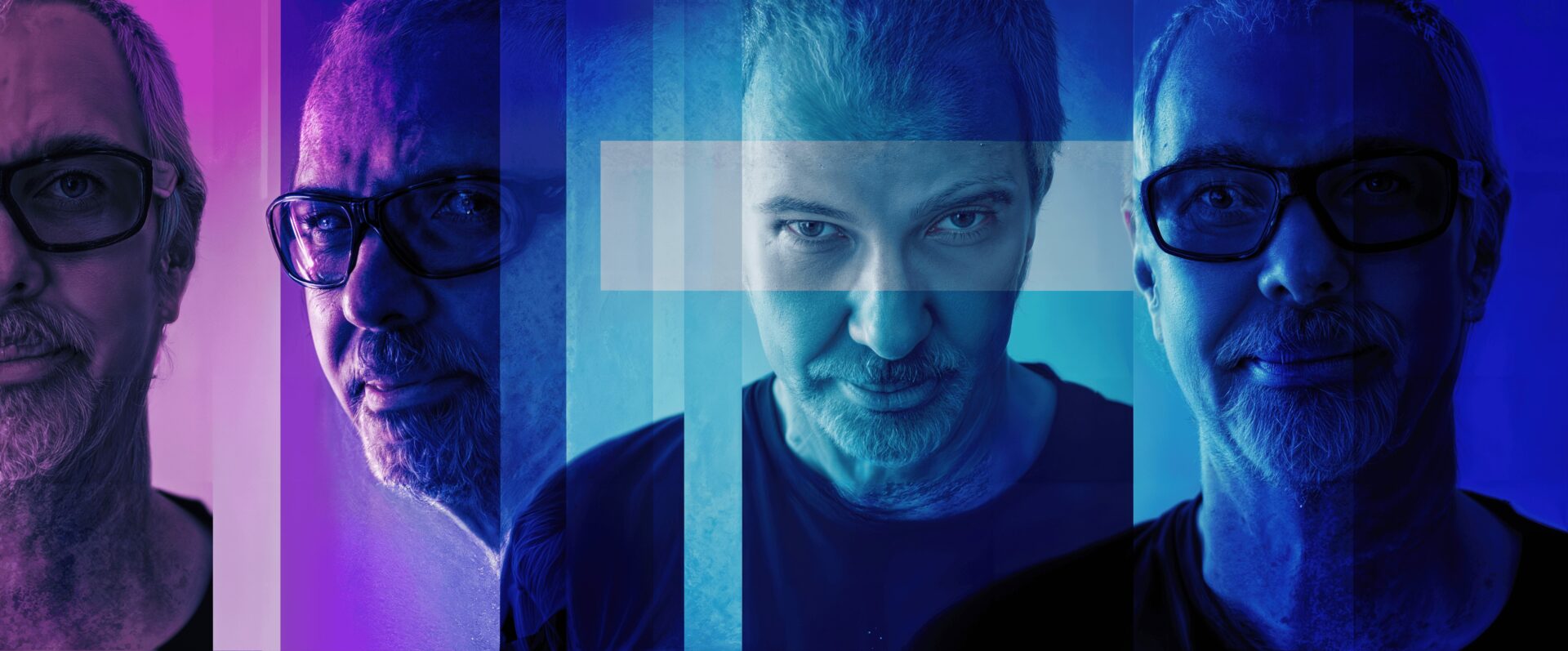We recently connected with Michael Sean McGuinness and have shared our conversation below.
Michael Sean, so great to have you with us and we want to jump right into a really important question. In recent years, it’s become so clear that we’re living through a time where so many folks are lacking self-confidence and self-esteem. So, we’d love to hear about your journey and how you developed your self-confidence and self-esteem.
There are several ways that I’ve developed my confidence and self-esteem throughout my life.
First, throughout my childhood, my father worked for the railroad. His job transferred him to a different city about every two years, so I was always “the new kid in town.” This constant relocation taught me to how to make new friends very quickly. I didn’t want to be a loner just because I was a new arrival. I learned how to talk to other kids I didn’t know, tell jokes to make them laugh, and be friendly and kind to them. This was a great boost to my confidence; I learned that I could get along with all sorts of people in all sorts of places.
Then, when I was in middle school, I joined the track team. I wasn’t a great runner, but I was on the team, and I always did my best not to let my teammates down. When I graduated, the school gave me an award for “The Most Improved Athlete.” I still have the award plaque hanging on my wall at home, and whenever I walk by it, I am reminded that I can get better at anything I want to do if I work hard at it. That realization, that my success depends on my own efforts, always raises my confidence and self-esteem.
Finally, when I graduated from acting school at New York University, I began auditioning for jobs. As a young actor, I found auditioning very stressful and nerve-wracking. But as I kept auditioning, I began to realize that no two actors are exactly alike. That meant there was really no competition; if a director wanted to hire somebody else, it wasn’t a rejection of me. It just meant he wasn’t looking for an actor with my unique value proposition, to use a business term. This insight freed me from any anxiety about auditioning.
But my confidence grew even more when, after some initial success. I realized that I was a good actor, and that agents and casting directors and productions needed good actors so “the show could go on”, so to speak. They needed to solve that problem of finding good actors. That inspired me to go into the audition process with an attitude of “How can I help you solve your acting problem?”, rather than an attitude of fear. That put me in a much more confident state of mind, and that’s when my acting career started to take off even more.
So in conclusion, all these experiences throughout my life (learning how to make friends easily, knowing how to improve through hard work, and adopting a mind-set of helping other people) continue to strengthen my confidence and self esteem.

Let’s take a small detour – maybe you can share a bit about yourself before we dive back into some of the other questions we had for you?
I’ve been a professional actor since I graduated from New York University when I was 21 years old.
My acting jobs used to be all Shakespeare in the theatre, but now it’s mostly TV and film jobs. I appreciate both kinds of work, for different reasons.
Acting in Shakespeare plays on stage is like being a literary athlete. The stories are drawn from history and mythology, and the language is elevated and poetic, yet always emotionally relatable. There’s often sword fighting involved, which I love, since I competed on the fencing team at NYU. It feels thrilling and larger than life, but always grounded in recognizable human motivations and behavior.
Acting in TV and film productions is very different from acting on stage. Acting in theatre is necessarily expansive, in order to reach the audience, some of whom might be sitting in the back of the house. Acting on film, however, is much more intimate. Your performance only has to be projected a few inches, to the camera and your acting partner. You have to be concentrated, and precise, like a surgeon.
In terms of my recent activity, I’ve been working with actor/writer/producer Kevin B. Ploth to develop an original TV police drama series called The Giant, which I think is going to start production soon.
I’m also developing an acting class based on the teachings of Constantin Stanislavski (the artistic director of the famous Moscow Art Theatre in the late 19th/early 20th century) trying to bridge the artificial (I think) divide between the “Method” acting techniques of Lee Strasberg and Stella Adler.

There is so much advice out there about all the different skills and qualities folks need to develop in order to succeed in today’s highly competitive environment and often it can feel overwhelming. So, if we had to break it down to just the three that matter most, which three skills or qualities would you focus on?
There are three qualities, skills, and areas of knowledge that have proven very helpful as I developed my career.
The first quality is perseverance and determination. Pursuing a career as an actor (or any other job in the entertainment industry) is very challenging; it’s one of the most competitive fields in the world. So many people are trying to break into show business, there are probably hundreds of applicants for every job. The only certain way to fail is to give up and quit. So don’t do that.
Another very important skill is learning how to understand other people and their motivations. The first benefit of developing this skill is that, as an artist (actor, writer, etc.), understanding other people and what makes them tick is going to take you out of yourself, it’s going to help you create characters that are different from you.
Another benefit of understanding other people is that it’s going to help you with the business side of the entertainment industry, Every person you encounter at an audition or a pitch meeting has different needs, tastes, standards, and preferences. You have to understand those variables in order to get the job.
No two human beings or fictional characters think or react in the same way. Understanding people’s motivations is going to make you both a more successful artist and a more successful businessperson.
Finally, it’s vital to understand economics and business. Although the entertainment industry is about creativity, it’s also a business that needs to worry about the bottom line. Plays and films and television shows all cost money to produce, and companies don’t want to spend money on a project that they think won’t provide them with a return on their investment. So you have to be a sort of Renaissance Man; you have to be a creative artist and a practical businessperson at the same time.
How do you develop these skills?
To develop perseverance, I would suggest writing down a goal and then listing all the various tasks that lead to that goal. Do the task, cross it off your list and then move on to the next one until you achieve your goal. It’s also helpful to visualize how you’ll feel when you achieve your goal. Don’t give up.
To understand motivations, find opportunities to talk to other people, especially people you don’t know. Start a conversation. Ask them questions and listen to their answers. Don’t be obnoxious, but be curious. It’s also helpful to read widely: scripts, novels, psychology. Your job as an actor or writer is to be a detective of human motivations.
To learn about business and economics, you can usually find textbooks on these subjects at a used bookstore or online. A textbook will give you a foundation of knowledge. Also, don’t just read the sports or entertainment sections of a newspaper, read the business section as well. Watch the business networks on television, or watch videos on YouTube. Don’t worry if you don’t understand everything right away. Learning is a process. Just like art.

As we end our chat, is there a book you can leave people with that’s been meaningful to you and your development?
A book that I discovered as a young actor, and that I often return to year after year, is “The Hero With A Thousand Faces”, written by a famous scholar of mythology named Joseph Campbell.
Campbell was a student of mythology, the oldest stories in the world, all of which illuminate the experience of living as a human being on planet Earth. In this book, he collected and compared hero stories from many different cultures. He found that there were a multitude of similarities among all these heroic mythologies, regardless of differences in geography, culture, and language. Those similarities make sense when you consider the universality of stories about heroes; we all want to experience a sense of adventure, to achieve extraordinary results in our lives, and also to protect our families and friends.
Campbell identified a universal pattern of all these hero stories which he called the “Monomyth”. This Monomyth contains a definite sequence of events that the hero has to experience, including separation from the ordinary world, enduring trials and ordeals which transform the hero’s consciousness, and finally returning to the ordinary world with some type of gift, which is a direct result of the hero’s pain and suffering.
The insights that I’ve gotten from this book (and indeed all the heroic myths that this book analyzes) suggests to me that, in order to achieve more of my goals in life, I have to be brave enough to step out of my comfort zone; that adversity and failure, as well as joy and success, are all just parts of life; and that our reaction to all of our circumstances is what determines the trajectory of our lives.
Another benefit of this book, especially for actors and writers, is that each stage of Campbell’s Monomyth (also known as the Hero’s Journey) corresponds to the plot points of a script, which in turn motivates the development of the characters in that script. It makes sense that a book about mythology would help actors and dramatic writers in their creative process, given that theatre originated in Ancient Greece and the plots of those first plays were drawn from Greek mythology.
“The Hero With A Thousand Faces” has taught me so much about the universality of human experience and culture, the personal benefits of perseverance in the face of adversity, as well as a much deeper understanding of writing and acting. I truly can’t recommend it enough.
Contact Info:
- Facebook: https://www.facebook.com/michaelsean.mcguinness
- Twitter: https://x.com/MichaelSeanMcG1



so if you or someone you know deserves recognition please let us know here.




